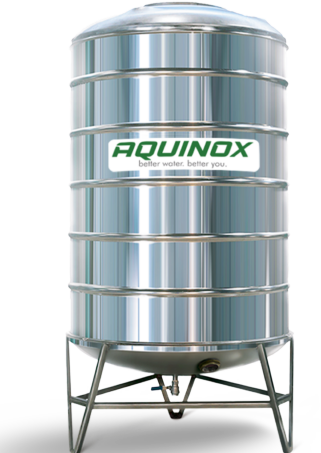Skip to content
Skip to footer

Stainless steel tanks are widely recognized for their utility across various industries due to their durability, resistance to corrosion, and overall efficiency. When it comes to storing non-drinking water, these tanks offer unmatched advantages, making them an essential choice for both commercial and industrial applications.
Stainless steel is renowned for its strength and ability to withstand extreme environmental conditions. Whether used to store rainwater, wastewater, or industrial byproducts, stainless steel tanks are built to last. They resist physical damage such as cracks and deformation, ensuring the stored water remains secure for extended periods.
One of the most significant advantages of stainless steel is its high resistance to corrosion. Non-drinking water often contains minerals, chemicals, or impurities that can corrode ordinary materials over time. Stainless steel tanks, however, remain unaffected due to the presence of chromium, which forms a protective oxide layer on the surface. This feature ensures that the tank remains functional and leak-proof, even in chemically aggressive environments.
Unlike tanks made from other materials, stainless steel tanks require minimal upkeep. Their smooth, non-porous surface prevents the buildup of algae, bacteria, and other contaminants, which are common in non-drinking water storage. This self-cleaning property reduces the need for frequent cleaning and maintenance, saving time and costs.
Stainless steel tanks are highly resistant to temperature fluctuations and can withstand high pressure without losing structural integrity. This makes them ideal for storing non-drinking water in industrial processes where extreme heat or pressure is common. Additionally, they can maintain the quality of the stored water even in harsh weather conditions, ensuring reliability year-round.
Stainless steel can be fully recycled, which makes it a sustainable and eco-friendly choice. After decades of use, the material can be repurposed, reducing waste and the environmental footprint. By opting for stainless steel tanks, industries contribute to sustainability while enjoying a reliable water storage solution.
Stainless steel tanks can be customized to fit specific storage needs, whether it involves capacity, shape, or additional features like insulation and fittings. This flexibility ensures that the tanks can cater to various applications, including agricultural irrigation, fire suppression systems, and wastewater treatment.
While stainless steel tanks may have a higher upfront cost compared to alternatives like plastic or concrete, their longevity and minimal maintenance requirements result in lower lifetime costs. The durability and efficiency of stainless steel tanks make them a sound investment for industries seeking reliable water storage solutions.
Stainless steel tanks are indispensable for storing non-drinking water due to their durability, corrosion resistance, and low maintenance. They offer a sustainable and cost-effective solution that meets the demands of various industrial and environmental applications. By choosing stainless steel, industries can ensure efficient water storage while reducing environmental impact and operational costs.